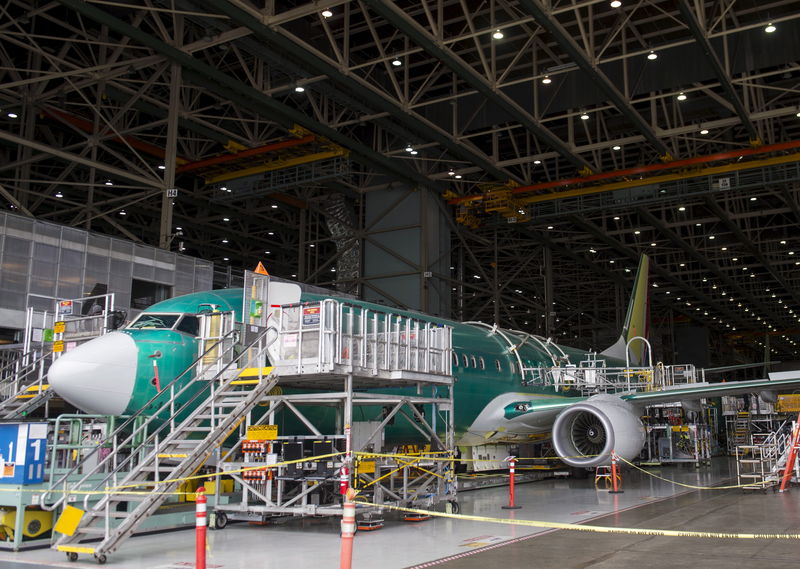Benzinga - by Neil Dennis, Benzinga Staff Writer.
Two of Boeing Co‘s (NYSE:BA) biggest customers have made separate calls for greater safety oversight at production facilities run by the aerospace manufacturer following an incident nearly two weeks ago when an Alaskan Airlines (NYSE:ALK) 737 Max 9 jet was forced to make an emergency landing after a door panel blew out in mid-flight.
Ryanair Holdings (NASDAQ:RYAAY) runs one of the biggest fleets of Boeing aircraft, with around 230 currently in service, and has 300 of the company’s 737 Max 10 models on order.
Ryanair’s outspoken boss, Michael O’Leary, has deployed more engineers to oversee quality control at Boeing’s U.S. factories where its aircraft are being built.
He said at a press conference on Wednesday that he maintained confidence in Boeing and that the company had been “very welcoming” of Ryanair putting more engineers in Seattle.
“I think both Boeing have to improve the quality of what they're delivering to customers, and customers have to be seen to be actually investing in improving the quality on the shop floor at Boeing as well,” he added.
Also Read: Boeing Hit With Lawsuit Over Ill-Fated, ‘Waking Nightmare’ Flight
Set Aside Financials To Focus On Safety
AerCap“Given what has happened with the two fatal crashes and this incident, the financial targets have to take a back seat for Boeing,” he said, referring to crashes in October 2018 and March 2019 of two 737 Max 8 jets and the Jan. 6 Alaska Airlines incident.
He told the FT: “Boeing must now focus 100 percent on quality and safety metrics. Financial metrics are completely secondary to the future of the company at this point.”
Shares of Boeing have fallen 18.5% since the Alaska Airlines incident, and fell nearly 8% on Tuesday alone after Wells Fargo downgraded the stock from Overweight to Equal-Weight and lowered its price target from $280 to $225.
Analyst Matthew Akers said: “Boeing’s fourth-quarter stock move indicates how fast sentiment can shift as production issues are resolved, however, given the FAA’s audit and its comment ‘safety, not speed' determines when Max 9 flies again, we expect a slower resolution this time.”
How Have Related Parties Fared?
Meanwhile, shares in Spirit Aerosystems (NYSE:SPR), a former wholly-owned unit of Boeing that spun off in 2005, have fallen 15% since Jan. 6. The company manufactures fuselage parts, including doors, windows, bulkheads and floor panels.
While Boeing is Spirit Aerosystems’ main customer, the company is increasingly producing parts for Airbus (OTC:EADSY), Boeing’s chief rival in the commercial aircraft sector. In its latest financial statement, around 20% of its sales were from Airbus.
Yet, what has been Boeing’s misfortune has, in terms of share price, been Airbus’ victory. The Paris-listed shares are up 7% since Jan. 6, while the U.S.-listed stock is up 5%.
Finally, United Airlines (NASDAQ:UAL), which owns the biggest fleet of 737 Max 9 jets with the same configurations as the Alaska Airlines plane, is down 9% since Jan. 6.
Now Read: VIX At 2-Month High: Fears Mount As Markets Re-Assess Rate Cut Premium
Photo: Shutterstock
© 2024 Benzinga.com. Benzinga does not provide investment advice. All rights reserved.
